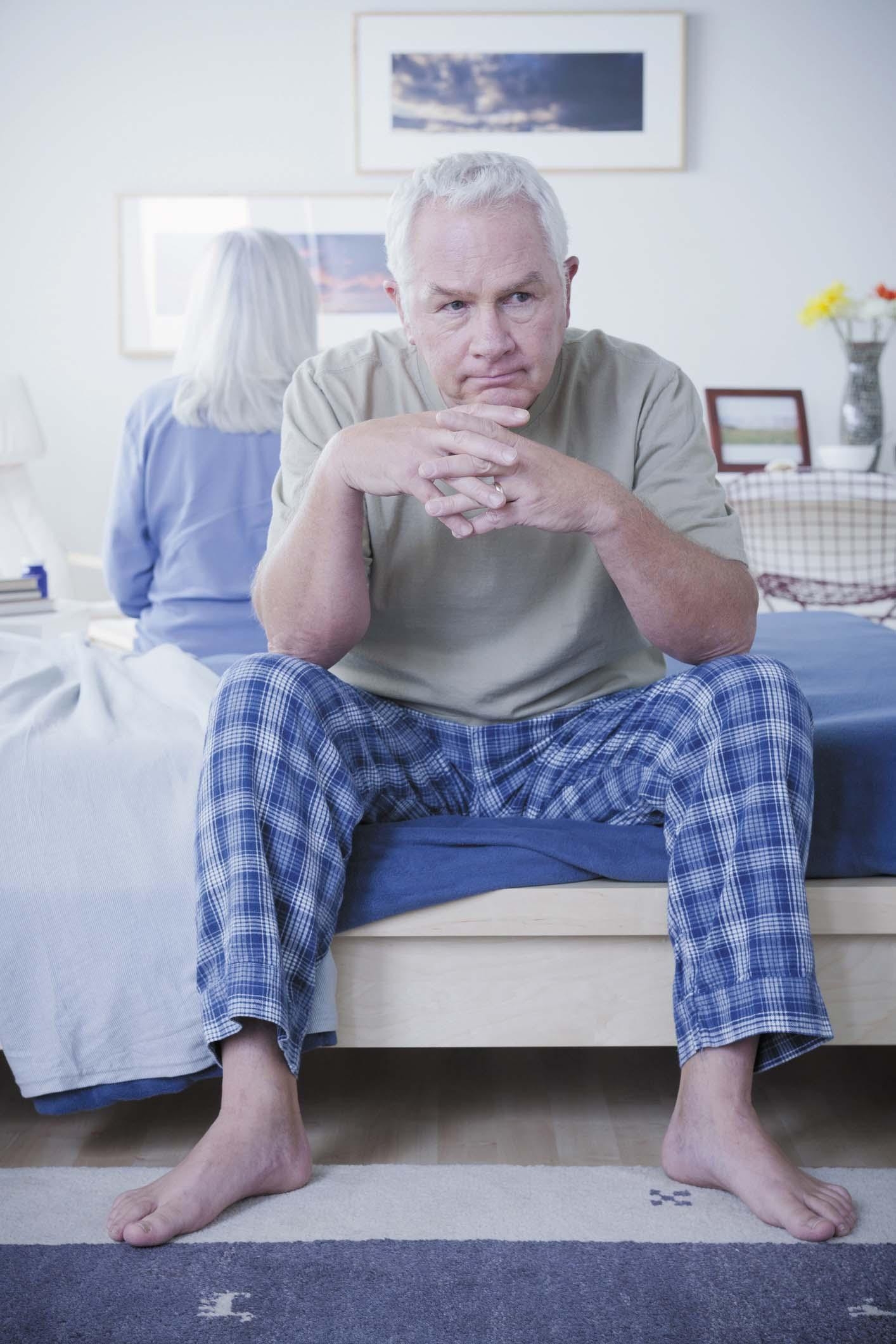Dealing with a sluggish sex drive
What couples can do when one or both partners have low libido.
- Reviewed by Howard E. LeWine, MD, Chief Medical Editor, Harvard Health Publishing; Editorial Advisory Board Member, Harvard Health Publishing
 It’s normal for a couple’s sex life to ebb and flow. However, as people age, many factors can impair their sex drives.
It’s normal for a couple’s sex life to ebb and flow. However, as people age, many factors can impair their sex drives.
For men, the natural decline of testosterone, the male sex hormone, can reduce libido. Men may also experience other issues that can interfere with sex drive, such as erectile dysfunction, side effects from prostate cancer treatments, and health problems like obesity, diabetes, heart disease, high blood pressure, and high cholesterol.
Women experience a dramatic drop in estrogen levels as they move from perimenopause to menopause. This usually leads to vaginal dryness, which can make intercourse uncomfortable or painful.
“All of these changes can make both individuals avoid intimacy, or cause sexual drive to diminish,” says Dr. Sharon Bober, director of the Sexual Health Program at Harvard-affiliated Dana-Farber Cancer Center.
Still, couples should never consider a drop in sexual desire as their new reality. “While it’s normal to lose your sexual drive at times, that doesn’t mean it’s permanent and you can’t do anything about it,” says Dr. Bober.
Talk about it
No matter whether you, your partner, or both experience low sex drive, the first step to managing the issue is to talk about it together. One of the initial goals of the conversation is to clarify that low sex drive is not a sign of rejection, says Dr. Bober.
“People can feel that their partner’s low sex drive means that their partner no longer finds them attractive, and that in turn lowers their own feelings of sexuality,” says Dr. Bober. “Explaining that a diminished libido is not personal and you still find them desirable can put both people on the right path from the start.”
Both partners should share what they enjoy before and during sex, what issues may be hindering their sex drive, and how they can work together toward a common goal of being more intimate.
Communication can also strengthen your emotional bond. “An emotional connection can increase physical attraction and desire, especially when you are working together to improve the relationship,” says Dr. Bober.
When initiating the conversation, use a lot of “I” statements, says Dr. Bober. For example, “I miss having a connection with you”; “I want to help us figure this out, as we are a team”; and “Our relationship is important, and I want to help us both.” “This makes the dialogue positive and shows you are interested in both your partner’s needs and the relationship,” says Dr. Bober.
Putting it into drive
If health factors contribute to your low sex drive, see your doctor about how to address them. Otherwise, there are many strategies couples can explore to get more in sync. If your conversations did not yield any ideas, here are some suggestions to consider.
Return to dating. “Think about the excitement that comes when people enter a new relationship,” says Dr. Bober. “Couples can recreate a lot of that newness, which can lead to a spark in sexual desire for both people.” For example, schedule regular dates with your partner, and plan outings that involve new experiences, such as a hobby, an event, or an overnight destination. “Doing something different and spontaneous can offer a sense of excitement that increases desire and can bring you and your partner closer together,” says Dr. Bober.
Engage in other types of physical intimacy. Spend time hugging, kissing, holding hands, and exploring each other’s bodies without sex being the goal. “Focusing on so-called 'outercourse’ can be enormously pleasurable while also reducing any performance pressure that could affect sex drive,” says Dr. Bober.
Try something new. Look into other fun ways to create an intimate mood, like reading something erotic to each other, watching a sexy movie, showering together, giving each other massages, or trying sex toys.
Plan time for intimacy. If motivation is a barrier, set up a sex date. “Sometimes you just need to make sex happen to jump-start your libido,” says Dr. Bober. “This way, neither partner need feel pressured to initiate, but rather together you can plan for and anticipate some physical connection with each other. If sex doesn’t happen, that’s okay. But creating a ritual can help establish the perception that regular intimacy is central to your relationship and not a chore.”
Show your desire. Telling your partner you still find them attractive is not enough. “Make a regular effort to compliment your partner both physically and emotionally, and show that you still want a connection,” says Dr. Bober.
Image: © Rob Lewine/Getty Images
About the Author

Matthew Solan, Executive Editor, Harvard Men's Health Watch
About the Reviewer

Howard E. LeWine, MD, Chief Medical Editor, Harvard Health Publishing; Editorial Advisory Board Member, Harvard Health Publishing
Disclaimer:
As a service to our readers, Harvard Health Publishing provides access to our library of archived content. Please note the date of last review or update on all articles.
No content on this site, regardless of date, should ever be used as a substitute for direct medical advice from your doctor or other qualified clinician.
















